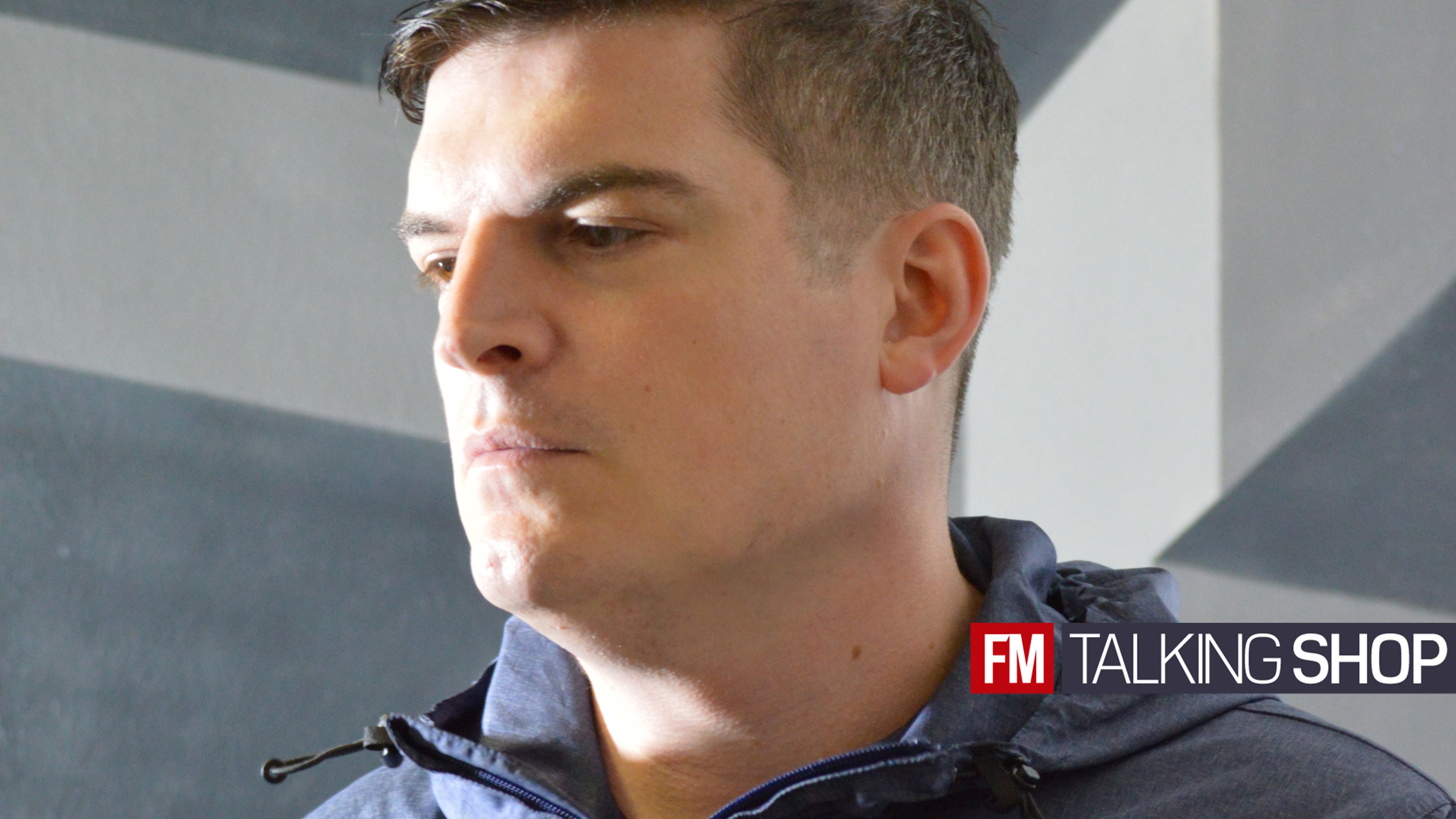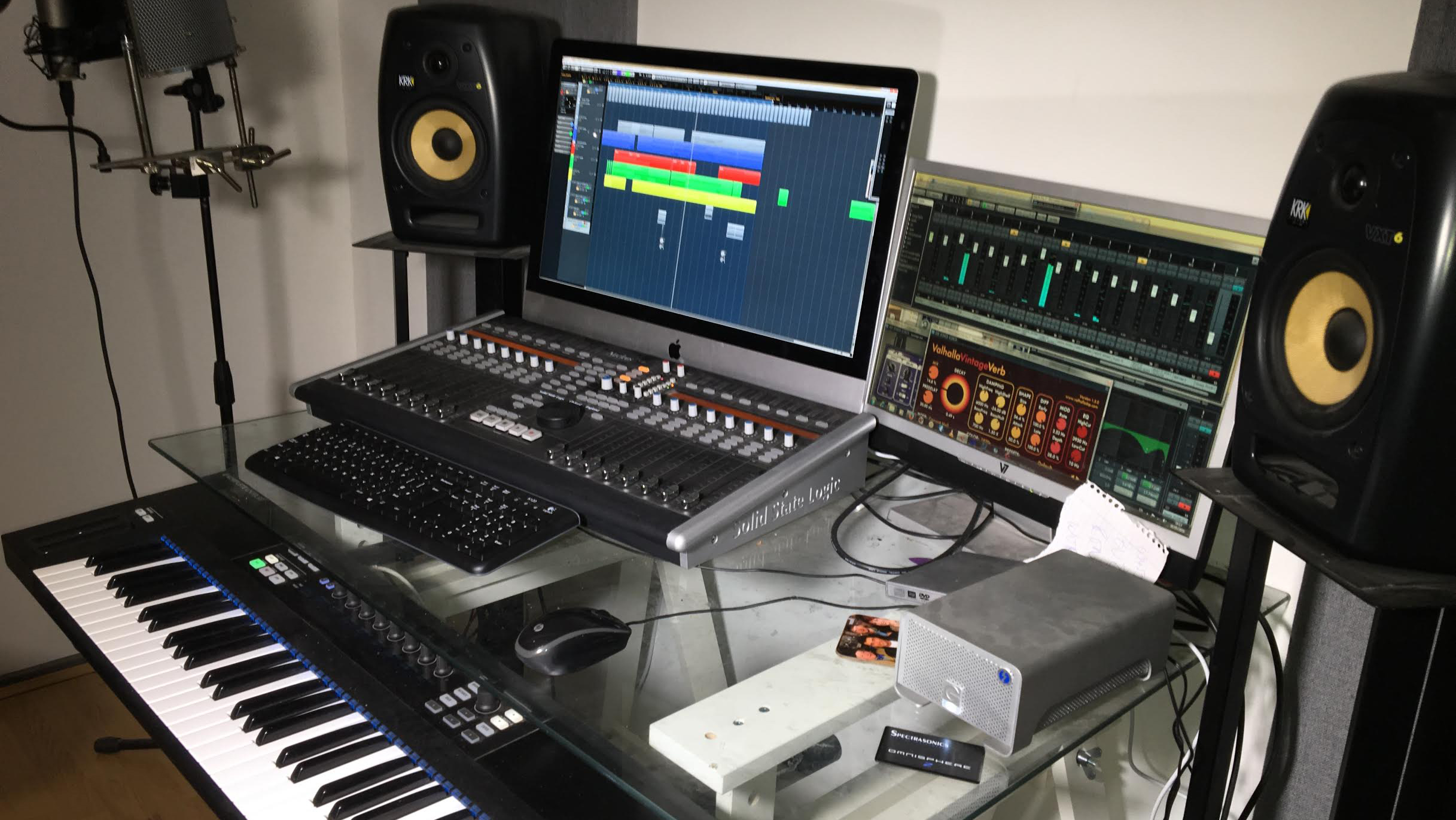Talking Shop: Hervé
The UK producer invites us into his studio

Between his 15 year solo career, his seminal work as one half of The Count & Sinden, and his staggering list of collaborations and remixes, Joshua Harvey's CV is certainly impressive. With his latest release, Hallucinated Surf, out now on Skint Records, FM caught up with Harvey to find out more about how he works.
When did you start making music, and how did you first get started?
"One summer when I was 13 a friend came around with the keyboard player from his band. he noticed I had a small drum kit and an Atari ST in my room and told me if I was into making music I could sequence keyboards and drum machines on my Atari, i just needed Cubase. 'What the hell is Cubase?" I said, that's when he handed me a knackered looking floppy disk with the word Cubase written on it in luminous pen.
"Shortly after this I got my hands on a Roland D-10 (one of the worst synths I've ever encountered, but it was eight-part muti-timbral! Wow!) I started making my first forays into electronic music and MIDI and began my love affair with Cubase."
Tell us about your studio
"I rent a space in Seven Sisters (NE London), I've been there for about a year and a half now. It's great but I don't have a window, which I need to remedy at some point.
"I use mainly plugins, occasionally run bits through an old cassette player for the effect, but I'm mostly in the box. I have had a few people ask what outboard gear I use when they hear some songs of mine, testament to how good those plugins really are!
Get the MusicRadar Newsletter
Want all the hottest music and gear news, reviews, deals, features and more, direct to your inbox? Sign up here.

"I love how accessible virtual instruments are, how fast I can work with them and translate my ideas super quick, which is really important for me.
"What I would love, however, is a system that enabled me to have all my plugins and DAW on one external hard drive, so that I could carry it with me and just plug into any computer and be up and running. It would make upgrading computers so much easier as well as travelling to collaborate (obviously not as much of an issue if you use laptops, but I can't work like that)."
What DAW (or DAWs) do you use, and why did you choose it?
"Cubase, I think it chose me (see story above).
"I really disliked Logic when I've worked with someone who uses it as their DAW (these days, however, it's an absolute bargain considering what you get). I've always felt it was like trying to make music through a keyhole! Ableton is OK now that it sounds better, but it can't beat Cubase for me; I'll probably always use it bar some super DAW that is an amazing tech leap forward."
What one piece of gear in your studio could you not do without, and why?
"Quite a boring one but very essential - my GTech dual 4TB external RAID drive. I can do so much stuff with the way studio technology is these days, but if it gets wiped out by a failed SSD drive then it's kind of pointless.
"I lost a bunch of projects and four or five album tracks last year when an SSD I had died. I assumed they were the safest option but it turns out if they die like that you can't recover anything! A couple of film director friends turned me on to the GTech drives as it's what they all use for film to store files as they are very, very reliable (mirroring the two drives is still essential though, I would say)."
What's the latest addition to your studio?
"I recently bought Omnisphere 2, which comes on a cool credit card USB drive. I had version one but to be honest I didn't use it much, then they launched version two and the feedback seemed to be overwhelming positive, so I thought I would give it a go. I haven't had the time to really get into it just yet, as I'm normally busy making stuff! Always a problem for me.
"Just before that I upgraded to the latest Native Instruments Komplete, which comes on a little silver hard drive and is insane. you get so much for your money I forget to use half of it as there is so much to dive into. I really want to spend some time on Reaktor as Randomer, who is also in the studio complex, told me you can make some really great modular madness noise with it."
What dream bit of gear would you love to have in you studio?
"I have most of what I want or need, but I think I would definitely love the top of the range KRK speakers or some Barefoot monitors. Essentially i have what I need, without good ideas the equipment is useless anyway!"
When approaching a new track or project, where do you start?
"If I'm creatively stuck I always start with drums and weird noises - always gets me out of a block without fail.
"A lot of the time an idea just pops into my head; a sample, a lyric, a rhythm or a blend of styles. Then I just go in to the studio and try and create what's in my head. I read books and watch lots of films too, as I believe you need to mix up your creative input a lot to help with feeding the imagination."
What are you currently working on?
"I'm producing a couple of projects for other people and I'm also speaking with a director about doing the soundtrack to his film, early days yet but could be really cool. The director is really into part two of Hallucinated Surf, so it could be a great project.
"Working on some club stuff and underground collabs and contemplating doing a new Machines Don't Care album, if the right label comes along. There's some great new artists around that could really fit what i'd like to do with it."
Hervé's essential music making tips...
Be Original
"Always try and aim to get your own sound. There is so much music out there it's hard to get noticed. Feed your imagination with books films and music (and life experiences). Learn about song structure. If you are making dance music, it will help inform how to make your arrangements interesting - obviously it will not be the same as a traditional song structure but seeing how pre-chorus, middle 8 etc work, I believe, will really be useful. And it will help you feel more comfortable if/when you start working with singers."
Learn some basics
"If you can, learn some basic piano stuff. Getting some basic knowledge of chords, minor, major, fifths etc can really help you realise what's in your head, but it also will enable you to hear what other people are doing in their tracks. When you have a better knowledge of these things it helps unlock other people's songs, which will hopefully in turn help you learn even more. On the production side, YouTube! There's so much great stuff on there, from basic compression tutorials to Pensados Place.
EQ is your best friend
"Use EQ to slice off all the unused frequencies on all the elements: lows, mids and highs. This will give you more headroom and help to make your mixes bigger and more dynamic. I've mentored/manage a few people and working this out has seen the biggest results in terms of improving their work."


Future Music is the number one magazine for today's producers. Packed with technique and technology we'll help you make great new music. All-access artist interviews, in-depth gear reviews, essential production tutorials and much more. Every marvellous monthly edition features reliable reviews of the latest and greatest hardware and software technology and techniques, unparalleled advice, in-depth interviews, sensational free samples and so much more to improve the experience and outcome of your music-making.
“I’m looking forward to breaking it in on stage”: Mustard will be headlining at Coachella tonight with a very exclusive Native Instruments Maschine MK3, and there’s custom yellow Kontrol S49 MIDI keyboard, too
“Turns out they weigh more than I thought... #tornthisway”: Mark Ronson injures himself trying to move a stage monitor










